Current Research
Learn how Animals Fiji’s ongoing research contributes to developing evidence-based practices that improve animal welfare and support our communities.
Community Survey: Dog Management Programs
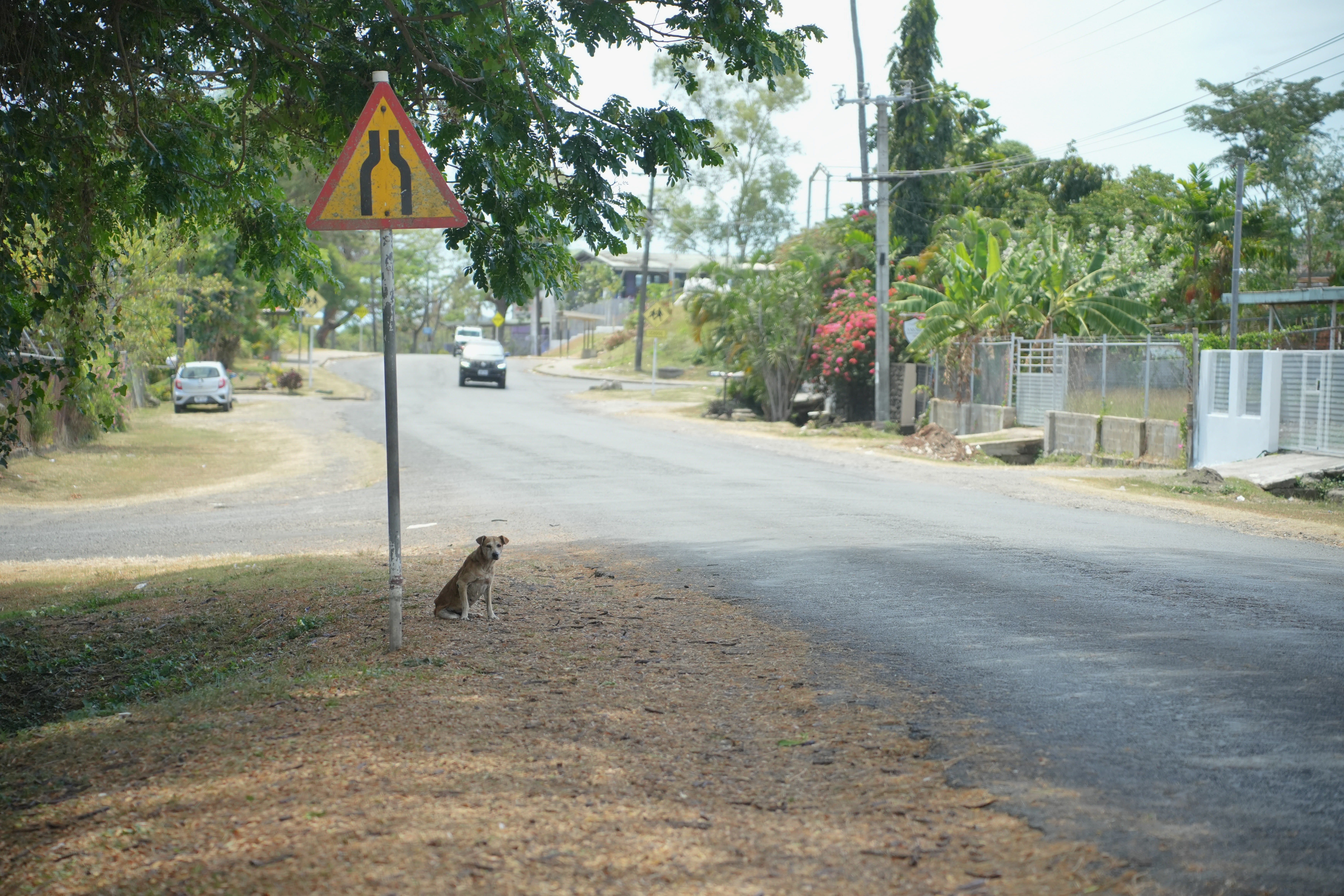
We have launched a national survey to learn which Dog Population Management programs are most likely to work in Fiji.
STATUS: Active
Animals Fiji, in partnership with SPCA Fiji Islands, has launched a national Behavioural Prioritisation Matrix (BPM) survey to engage community members in future Dog Population Management (DPM) programs.
The survey allows Fijians to express their views on DPM strategies and their likelihood of adopting identified behaviours and interventions.
A Behavioural Prioritisation Matrix survey is a research tool used to quantify behavioural data. Specifically, it aims to identify behaviours that are anticipated to have a significant impact, have a high adoption probability and are not widely practised by the community.
The BPM survey aims to understand the following:
- What actions are people taking, or willing to take, to manage Fiji’s FRD population and reduce issues like dog bites or livestock attacks?
- Why do some people not want to take these actions?
- What actions can organisations involved in DPM take to help address the FRD population?
Successful DPM strategies must adapt to local community contexts. Insights into how people manage dogs, along with knowledge of local dog population dynamics, are crucial for designing interventions that are both relevant and effective.
Alongside this survey, we are also implementing a nationwide expert survey for those with considerable expertise in DPM.
Expert and community responses will be combined to calculate a “Total Weighted Impact” (TWI) score. This will rank behaviours and interventions by their potential to improve DPM in Fiji.
We will recommend the highest-ranked interventions to policymakers and government ministers, who can consider and enact DPM interventions.
The BPM survey is now open. You can complete the BPM survey if you are:
- 18 years of age or over
- Currently living in Fiji
The survey will take around 20 minutes to complete: https://s.surveyplanet.com/urroa1il
PRESS:
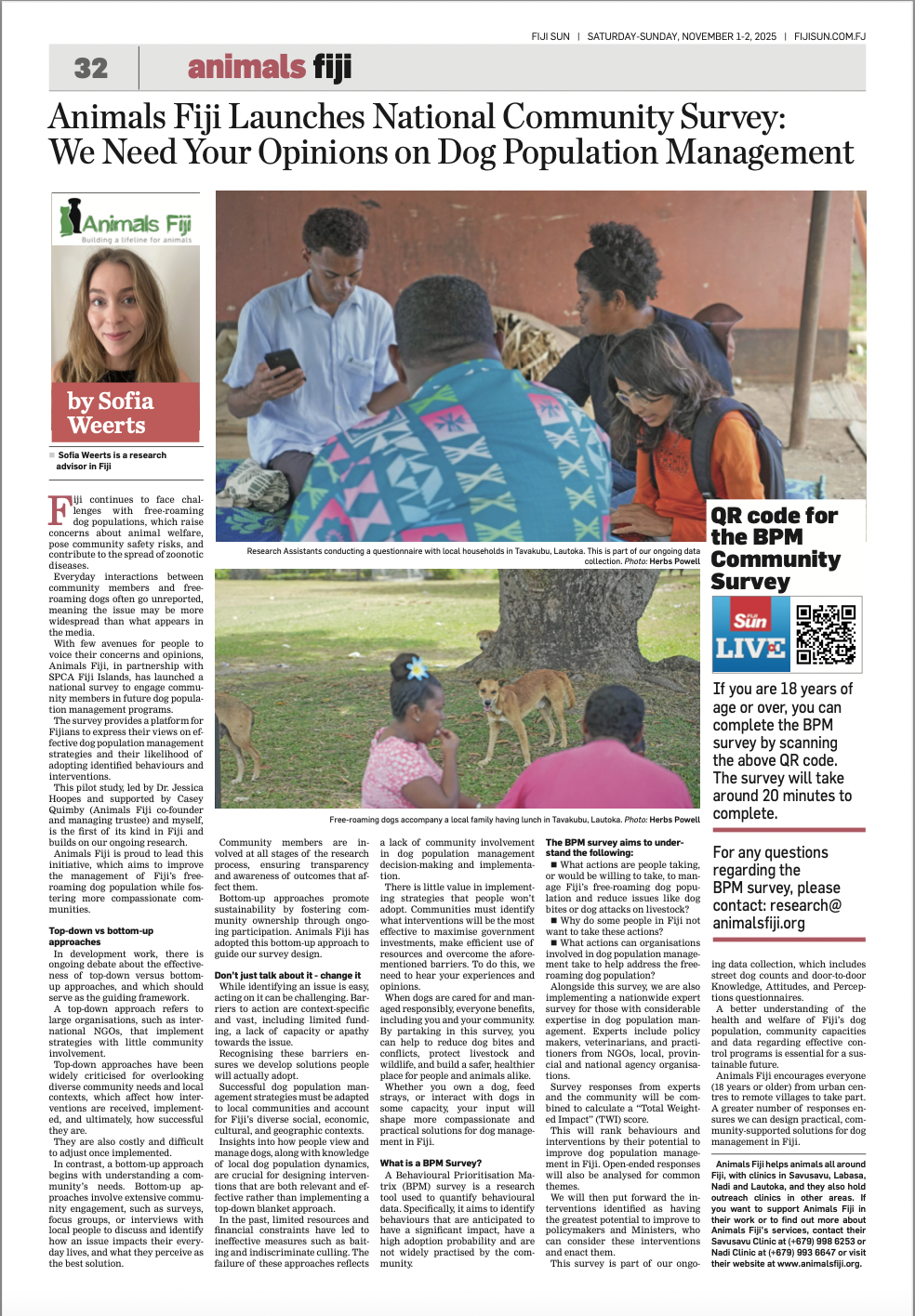
Read this article here:
https://www.pressreader.com/fiji/fiji-sun/20251101/281736980697176
Featured Researchers:
- Dr Jessica Hoopes
- Sofia Weerts
- Casey Quimby
-
Shaneel Narayan (SPCA Fiji Islands)
Tavakubu Dog Population Management Research
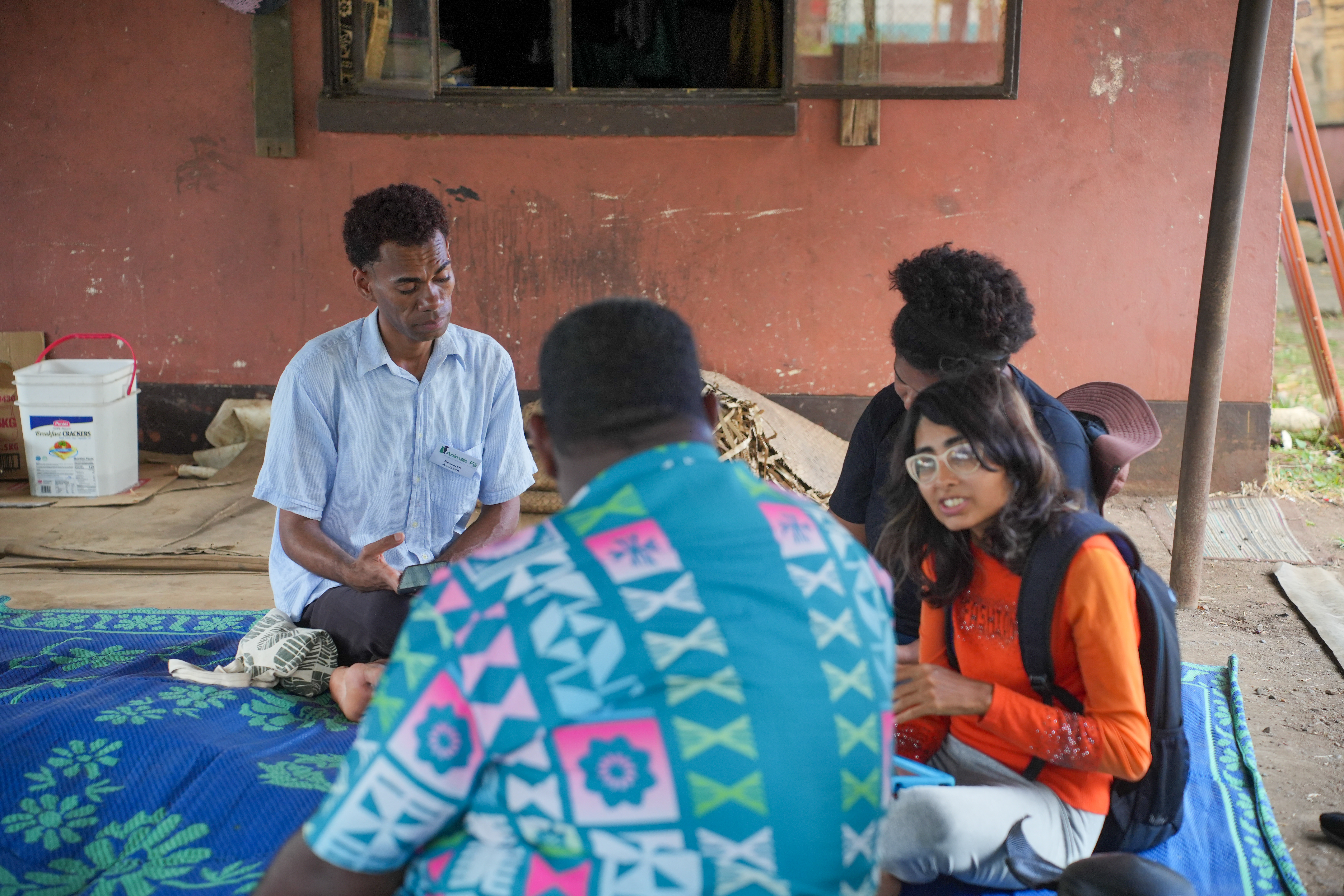
Human behaviours shape whether dog populations remain healthy and controlled or escalate into a serious public health risk.
STATUS: Analytic Phase
In many Fijian communities, free-roaming dogs (FRD) are reliant on humans in some capacity. Human behaviours such as ownership apathy and the (lack of) provision of veterinary care (i.e., vaccinations and desexing) contribute to the FRD population.
Addressing Fiji’s FRD population requires moving beyond short-term fixes, such as relying on subsidised veterinary services, towards long-term behavioural change.
Improvements in responsible pet ownership practices can only be achieved through a comprehensive understanding of human behaviours at a household level.
Dr. Jessica Hoopes and Casey Quimby led baseline data collection in the Tavakubu Ward of Lautoka from July to September 2023. Tavakubu’s population density and presence of FRDs made it a suitable location that reflects broader dog population trends across Viti Levu.
Baseline data collection included:
- Street Dog Counts: All FRDs sighted along a predetermined route were photographed and their physical characteristics recorded to track changes in the size and health of the FRD population over time.
- Household surveys: 219 door-to-door Knowledge, Attitudes and Practices (KAP) surveys were conducted in Tavakubu. The survey asked about dog ownership, ownership practices, and attitudes towards dogs.
The 2023 survey found that 45% of respondent households owned at least one dog, yet only 11.3% had their pets desexed. The primary barriers to desexing were the perceived cost and awareness of its importance.
Following baseline data collection, Animals Fiji partnered with Lautoka City Council and the Ministry of Agriculture and Waterways in a sterilisation intervention, providing desexing, animal licensing and microchipping to over 211 animals.
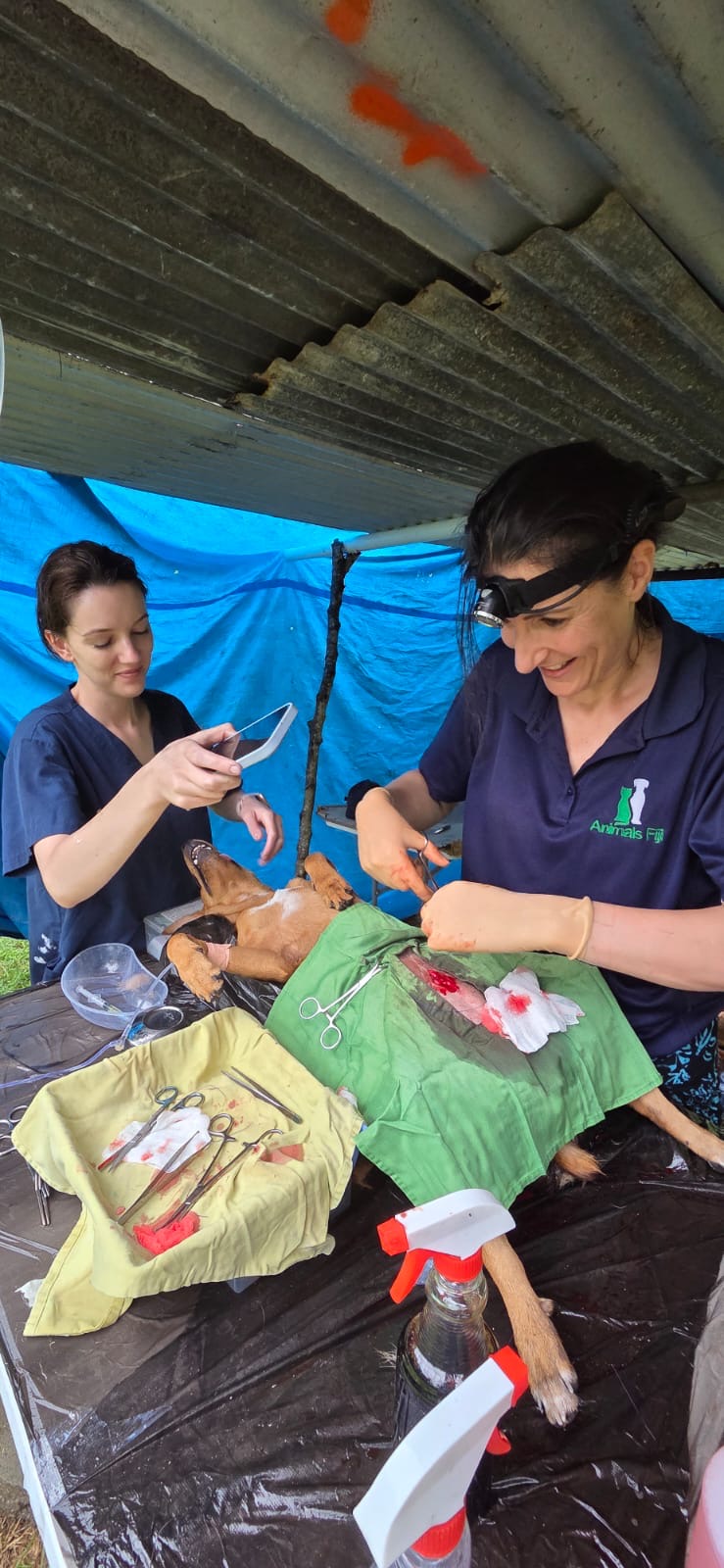
In 2025, we continued our research in Tavakubu to assess behavioural and population changes in the data over time.
During October and November 2025, Animals Fiji recorded 626 dog sightings and conducted 309 door-to-door (KAP) surveys.
Capturing community-level data allows us to assess the impact of our 2023 sterilisation intervention and investigate the root causes behind the FRD population.
The 2023 report, co-authored by Dr. Jessica Hoopes and Casey Quimby, will be accessible in late 2025.
PRESS:

Read the full article here:
https://www.pressreader.com/fiji/fiji-sun/20250912/281818584973901
Featured Researchers:
- Dr Jessica Hoopes
- Sofia Weerts
- Casey Quimby
Savusavu Dog Population Management Research
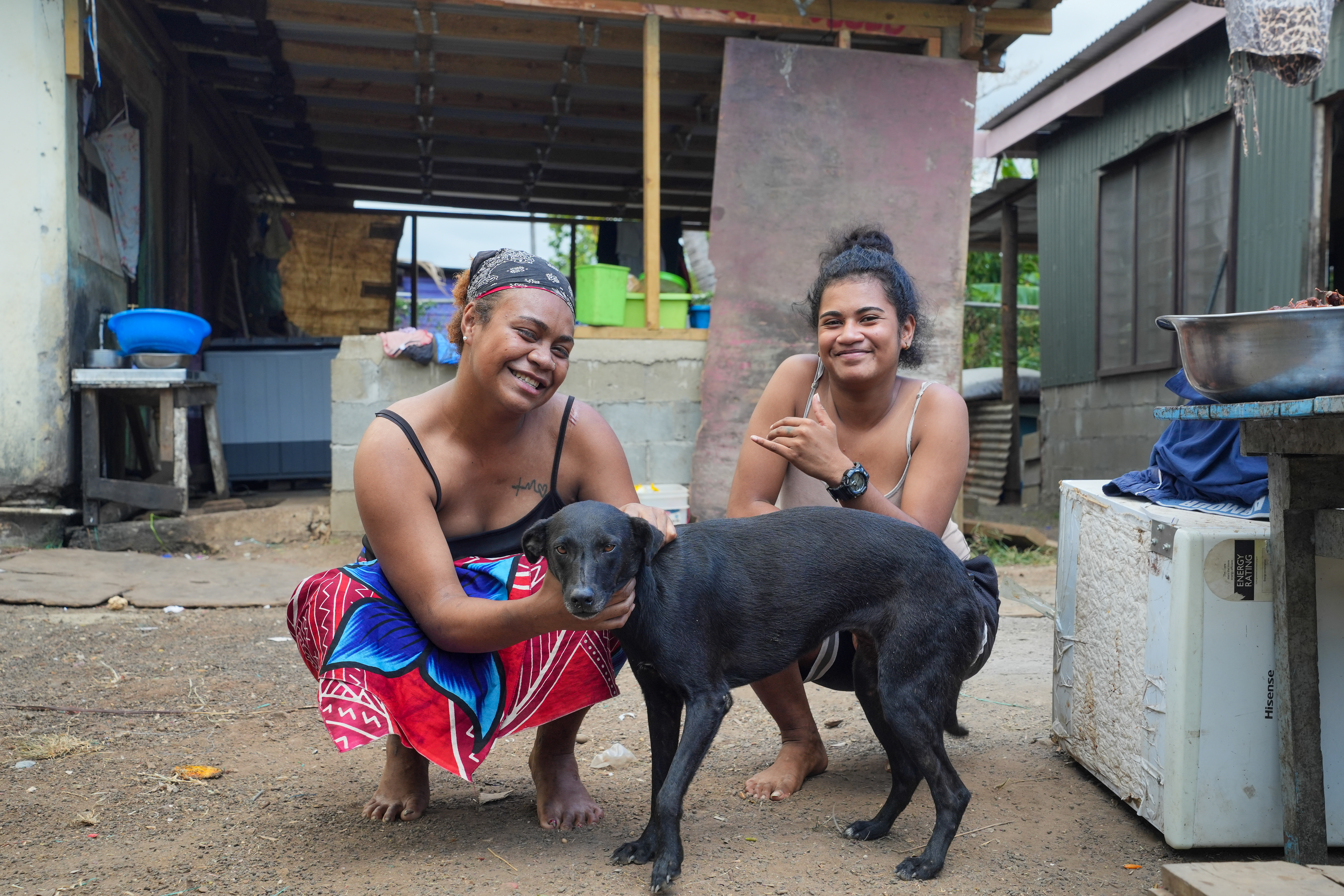
Animals Fiji are expanding our Dog Population Management research in Vanua Levu in 2026.
STATUS: Active
Animals Fiji are expanding our Dog Population Managment (DPM) research to Vanua Levu.
Specifically, our research are carrying out baseline data collection in Savusavu.
Similar to our research in Tavakubu, this data will be used to understand local dog population dynamics and community attitudes towards dogs and dog ownership practices.
The following research methods will be employed to gather the above data:
- Street Dog Counts
- Door-to-door KAP Surveys
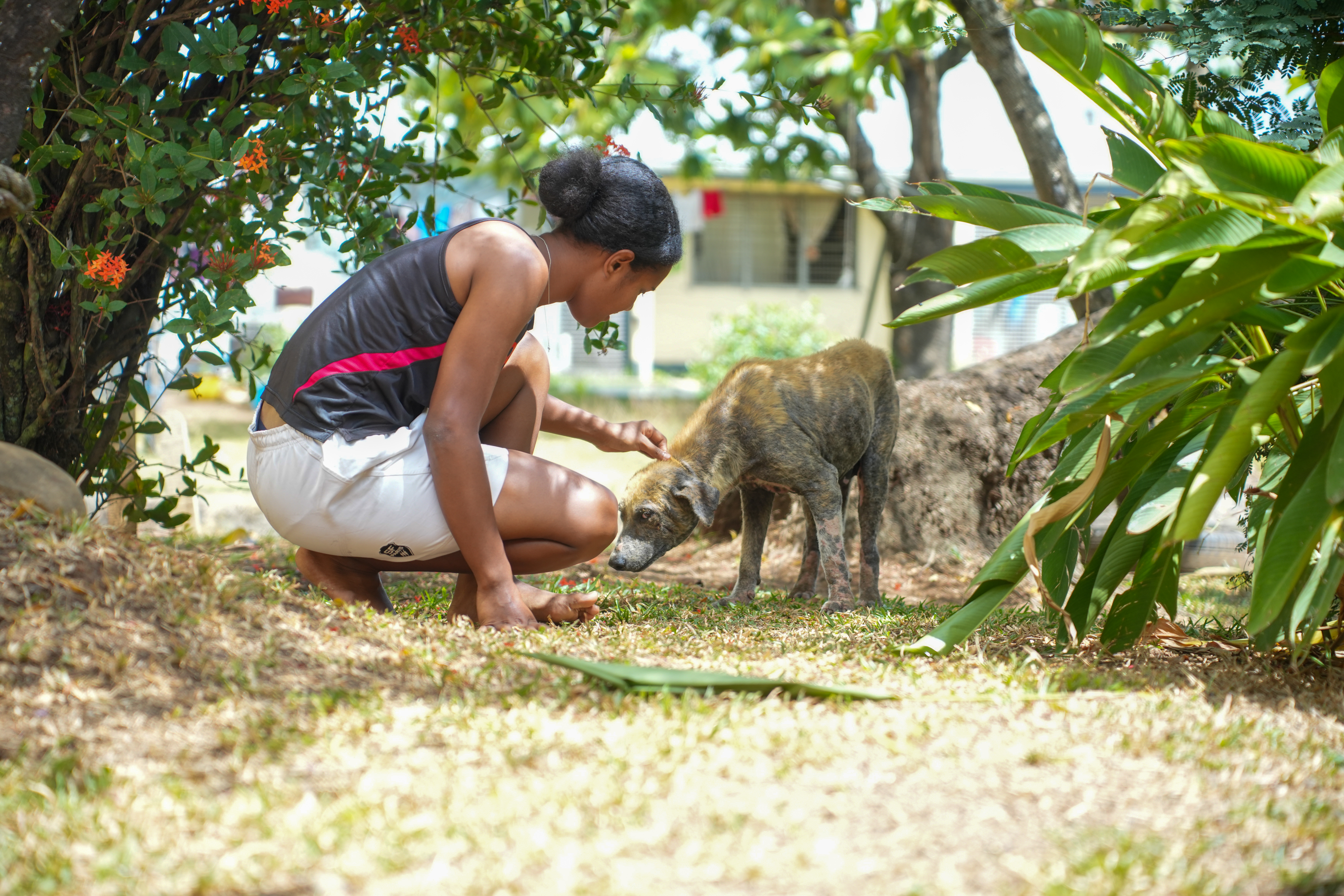
Featured Researchers:
- Dr Jessica Hoopes
- Sofia Weerts
- Casey Quimby